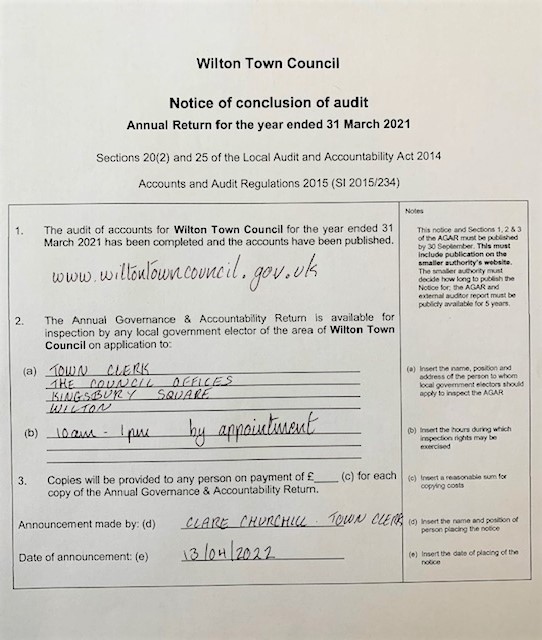Vacancy for a Town Councillor
Published: 18 December 2019
Wilton Town Council has a vacancy for a local councillor. If you love Wilton and want to help make the Town a better place for everyone, we would love to hear from you. The 'Notice of Vacancy' is now posted on the Council's Notice board. You can access the election request form here. As well as writing in you can also email a request for an election to fill this vacancy. Emails should be sent to; elections@wiltshire.gov.uk and should include your name and address.
So, if you or someone you know wants to become a Town Councillor, now is your chance!

WHAT IS A LOCAL COUNCIL?
Local council is a universal term for community, village, neighbourhood, parish and town councils. They are the first tier of local government and are statutory bodies. They serve communities and are elected by residents. They can raise their own precept (a form of council tax). There are 10,000 local councils in England and 120,000 councillors who serve on these local councils.
WHAT DO LOCAL COUNCILS DO?
Your local council has overall responsibility for the well-being of your local community. Their work falls into three main categories:
Delivery of services
Improve the quality of life for residents
Give communities a democratic voice
BECOMING A LOCAL COUNCILLOR
As a local councillor, you can become a voice for your community and make a real change. Local councillors are community leaders and represent the interests of the communities they serve. Local councillors have three main responsibilities:
- Decision-making
- Monitoring
- Getting involved locally
GETTING ELECTED
To stand for election to a local council you must:
- Be a UK or Commonwealth citizen; or be a citizen of the Republic of Ireland; or be a citizen of another Member State of the European Union
- Be at least 18 years old
- Be an elector of the local council; or in the past 12 months occupied land or other premises in the area the local council serves (as owner or tenant); or work in the area local council serves (as your principal or only place of work); or live within three miles of the local council boundary.
Local councils welcome and are committed to the inclusion and recognition of all regardless of race, culture, ability, ethnicity or gender identity and expression, sexual orientation, marital status, religious affiliation, and socioeconomic status.
FIND OUT MORE
Learn more about becoming a councillor below: